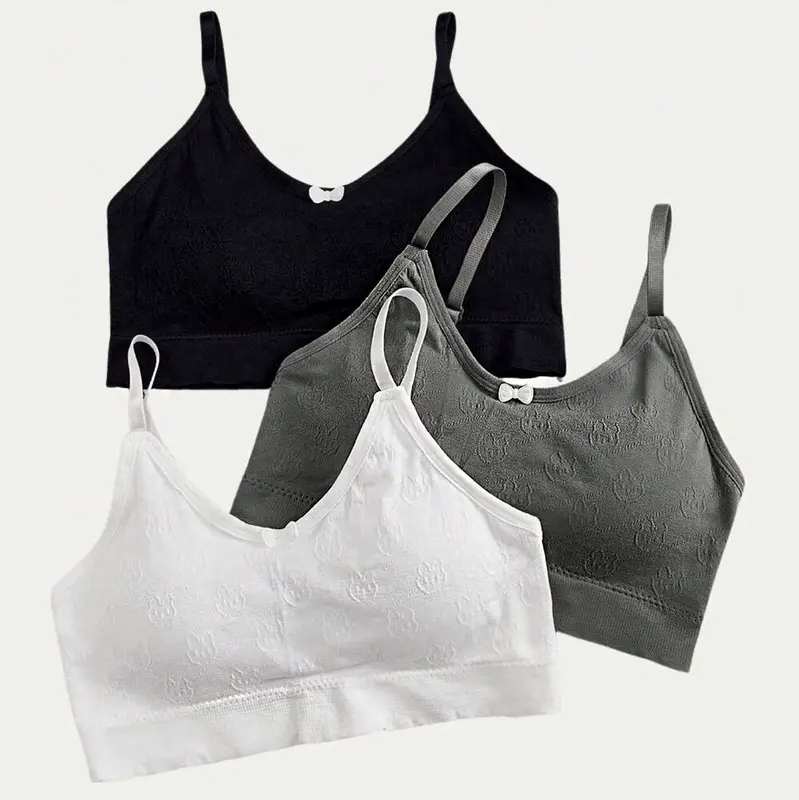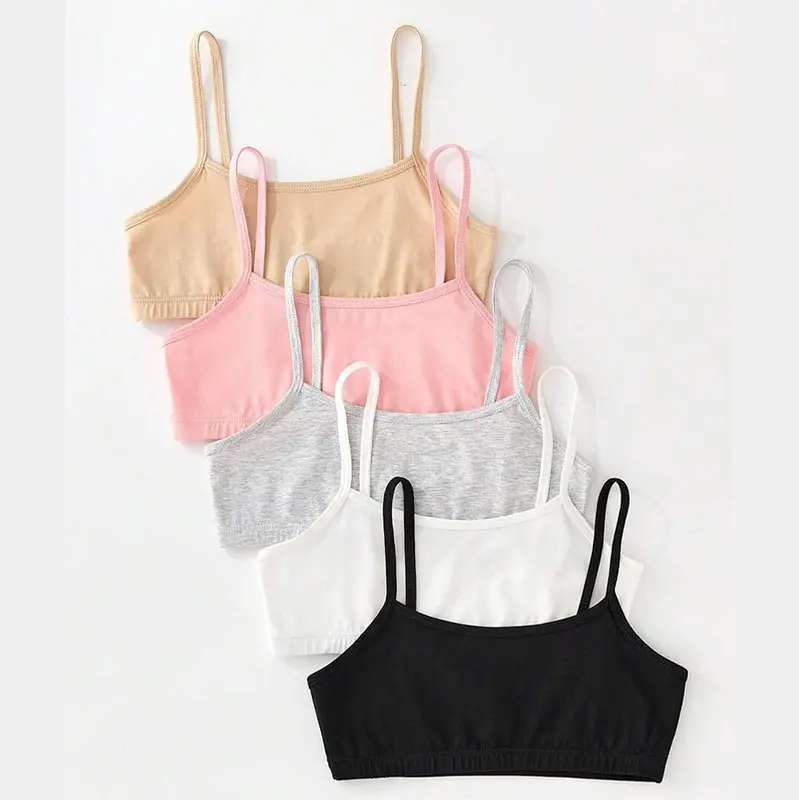- All
- Product Name
- Product Keyword
- Product Model
- Product Summary
- Product Description
- Multi Field Search
Views: 220 Author: snkidsunderwear Publish Time: 2025-11-05 Origin: Site











Content Menu
● Understanding Breathable Fabrics
>> What Are Breathable Fabrics?
● Benefits of Breathable Fabrics in Underwear Tops
>> Cotton
>> Bamboo
>> Modal
>> Polyester
>> Merino Wool
● Choosing the Right Breathable Fabric for Underwear Tops
>> Consider Your Activity Level
● The Impact of Breathable Fabrics on Health
>> Skin Health
In the world of fashion and comfort, the choice of fabric plays a crucial role, especially when it comes to underwear tops. Breathable fabrics are essential for maintaining comfort, hygiene, and overall well-being. This article delves into the significance of breathable fabrics in underwear tops, exploring their benefits, types, and the impact they have on our daily lives.

Breathable fabrics are materials that allow air to circulate through them, facilitating moisture evaporation and preventing the buildup of heat and sweat. This characteristic is particularly important in underwear tops, where skin contact and physical activity can lead to discomfort if the fabric does not allow for adequate ventilation.
The human body naturally produces sweat as a means of regulating temperature. When wearing non-breathable fabrics, sweat can accumulate, leading to discomfort, chafing, and even skin irritations. Breathable fabrics help to wick moisture away from the skin, keeping the wearer dry and comfortable throughout the day.
One of the primary benefits of breathable fabrics is the enhanced comfort they provide. Fabrics that allow for airflow help to regulate body temperature, preventing overheating. This is especially important during physical activities or in warm climates, where excessive heat can lead to discomfort and distraction.
Breathable fabrics contribute to better hygiene by reducing moisture buildup. When sweat is allowed to evaporate, the risk of bacterial growth and unpleasant odors decreases significantly. This is particularly crucial for underwear tops, which are worn close to the skin and can trap moisture if made from non-breathable materials.
Breathable fabrics often exhibit greater durability compared to their non-breathable counterparts. Materials designed for breathability are typically engineered to withstand wear and tear, making them a wise investment for everyday wear. This durability ensures that underwear tops maintain their shape and functionality over time.
Breathable fabrics come in a variety of styles and designs, allowing for versatility in fashion. Whether it's a casual tank top or a more fitted design, breathable materials can be tailored to suit different preferences while still providing the necessary comfort and functionality.
Cotton is one of the most popular breathable fabrics used in underwear tops. Its natural fibers allow for excellent airflow, making it a comfortable choice for everyday wear. Cotton is also hypoallergenic, making it suitable for individuals with sensitive skin.
Bamboo fabric has gained popularity in recent years due to its eco-friendly properties and breathability. Bamboo fibers are naturally moisture-wicking and have antibacterial properties, making them an excellent choice for underwear tops. Additionally, bamboo fabric is incredibly soft, providing a luxurious feel against the skin.
Modal is a semi-synthetic fabric made from beech tree pulp. It is known for its softness and breathability, making it a popular choice for underwear tops. Modal is also highly absorbent, which helps to keep the skin dry and comfortable.
While polyester is often associated with non-breathable fabrics, advancements in textile technology have led to the development of breathable polyester blends. These fabrics are designed to wick moisture away from the skin while allowing for airflow, making them suitable for activewear and underwear tops.
Merino wool is a natural fiber known for its breathability and moisture-wicking properties. Unlike traditional wool, Merino wool is soft and non-itchy, making it a comfortable option for underwear tops. It also has natural temperature-regulating properties, keeping the wearer warm in cold conditions and cool in warm weather.
When selecting a breathable fabric for underwear tops, consider your activity level. For high-intensity activities, look for fabrics that offer superior moisture-wicking properties, such as polyester blends or bamboo. For everyday wear, cotton or modal may provide the comfort and breathability you need.
The fit and style of the underwear top are equally important. A well-fitted top made from breathable fabric will enhance comfort and prevent chafing. Consider styles that allow for movement and flexibility, especially if you lead an active lifestyle.
Investing in high-quality breathable fabrics is essential for long-lasting comfort. Look for brands that prioritize quality materials and craftsmanship. Reading reviews and seeking recommendations can help you find the best options available.
Wearing breathable fabrics can significantly impact skin health. Non-breathable materials can trap moisture and heat, leading to skin irritations, rashes, and infections. Breathable fabrics help to maintain a healthy skin environment by allowing for proper ventilation and moisture control.
Comfortable clothing contributes to overall well-being. When you feel good in what you wear, it can positively affect your mood and confidence. Breathable fabrics enhance this experience by providing comfort and support throughout the day.
In conclusion, the importance of breathable fabrics in underwear tops cannot be overstated. They offer numerous benefits, including enhanced comfort, improved hygiene, increased durability, and versatility in design. By understanding the different types of breathable fabrics available and their impact on health, consumers can make informed choices that enhance their daily lives.

1. What are the best breathable fabrics for underwear tops?
- The best breathable fabrics include cotton, bamboo, modal, polyester blends, and Merino wool.
2. How do breathable fabrics improve comfort?
- Breathable fabrics allow for airflow and moisture evaporation, preventing overheating and discomfort.
3. Can breathable fabrics help with skin irritations?
- Yes, breathable fabrics reduce moisture buildup, which can help prevent skin irritations and infections.
4. Are all polyester fabrics non-breathable?
- No, advancements in textile technology have led to the creation of breathable polyester blends that wick moisture away from the skin.
5. How can I choose the right breathable fabric for my needs?
- Consider your activity level, desired fit and style, and the quality of the fabric when making your choice.
Hot Tags: China, Global, OEM, private label, manufacturers, factory, suppliers, manufacturing company